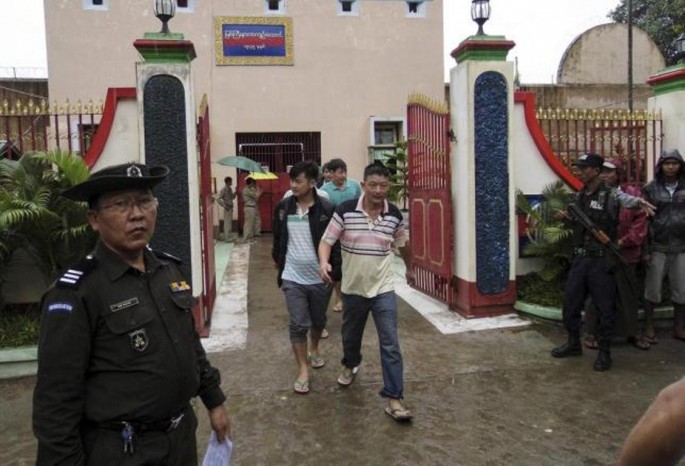China has given special amnesty to 31,527 prisoners by the close of 2015 under the country's first prisoner amnesty since 1975.
Among the prisoners who received special amnesty are 50 who took part in China's War of Resistance against Japanese Aggression (1937-45) and the civil war against the Kuomintang army (1945-490).
In addition, 1,428 people, who participated in wars to protect the national sovereignty, security, and boarder integrity after the formation of the People's Republic of China before they committed crimes, were also pardoned, according to Xinhua.
The special amnesty also covered 122 prisoners aged 75 years and above, besides those who are unable to take care of themselves because of physical disabilities.
Another group of 29,927 were pardoned because the policy also applies to those who were under the age of 18 when they committed the crimes, and who received a maximum sentence of three years, or juveniles whose remaining prison term was less than a year.
However, the amnesty could not apply to those convicted of serious crimes, including bribery or embezzlement, rape, terror cases, criminal syndicates, and other violent offenses.
The National People's Congress (NPC) Standing Committee issued the amnesty in Aug. 2015 as part of the celebrations for the 70th anniversary after the end of the Second World War, according to the Global Times.
According to the director of the NPC Standing Committee's legislative affairs commission, Li Shishi, the four categories of prisoners who received special amnesty pose "no threat to society."
Xinhua reported that more than 2.35 million convicts got their files and identities checked by over 2,500 members of the investigation team from national-level prisons prior to granting the amnesty. Quoting parents of some juveniles who received amnesty, Xinhua said that the move mirrors the country's care about the youth, and can help save broken families by giving them hope.
Meanwhile, a constitutional law professor at Wuhan University, Qin Qianhong, told the Global Times that the act shows the government's trust in its governance and legal system.
Similarly, Wang Ping, a criminal law professor from China University of Political Science and law, pointed out that the move is in line with the rule of law and will serve in promoting the authority of the Constitution.



























